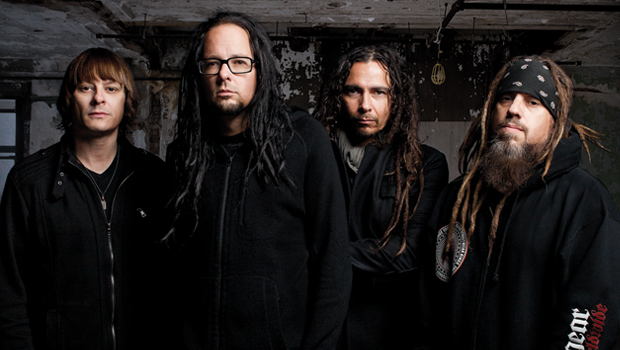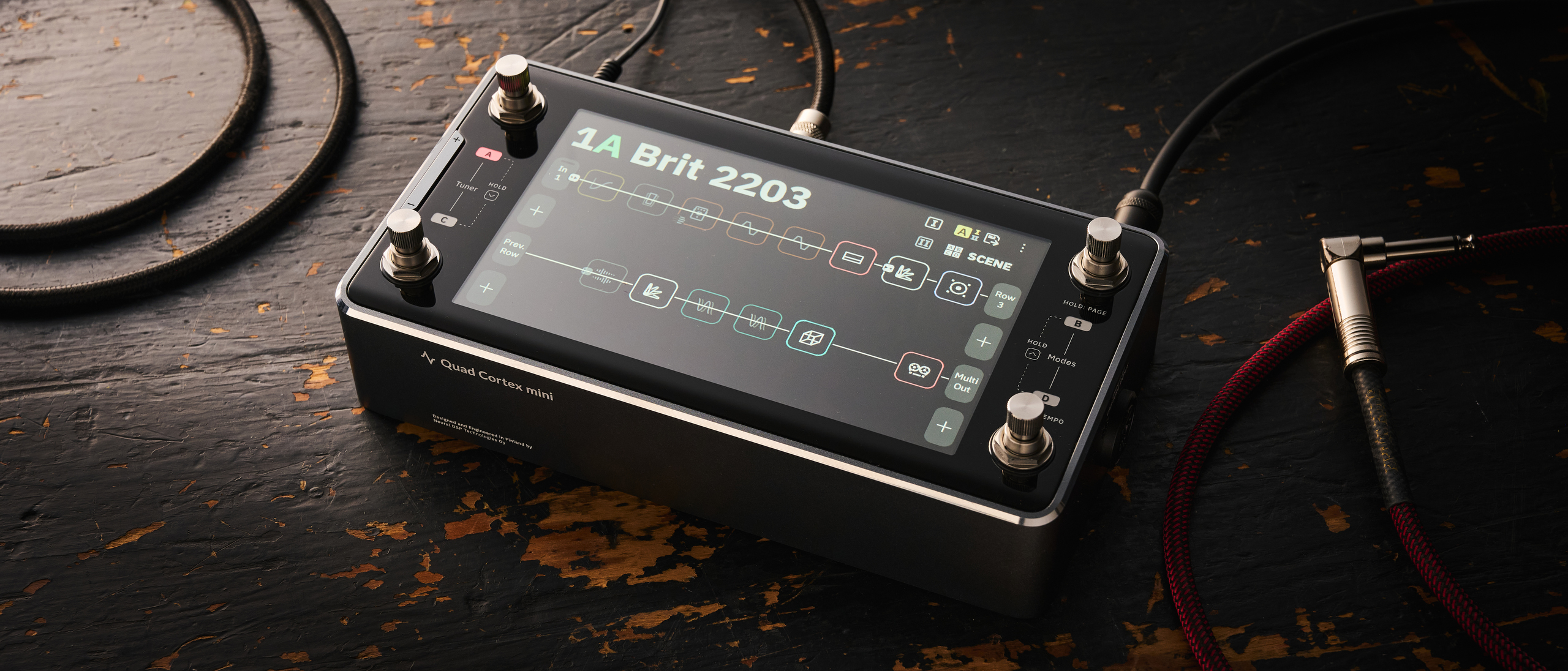All the latest guitar news, interviews, lessons, reviews, deals and more, direct to your inbox!
You are now subscribed
Your newsletter sign-up was successful

Korn made a lot of enemies this year when it was announced that they had made a dubstep album -- even before anyone had heard it.
Naysayers pointed to a number of fouls committed, including accusing Korn of making a dance album, chasing trends and the ever-vague but always-present "selling out."
Of course, if selling out is your main concern, you jumped off the Korn ship years ago when they became one of the most popular bands in recent memory. For a band heading into their 10th album, it would have been very easy for Korn to play it safe and continue down the path of 2010's Korn III: Remember Who You Are, an album that placated old-school fans with a smattering of tracks not unlike those found on Korn's groundbreaking 1994 debut.
But perhaps in making that record, Korn were reminded that their self-titled album did just that: break ground. Whatever the case, the band's latest album -- the so called "dubstep album" -- The Path of Totality, is first and foremost a Korn album.
GUITAR WORLD: How did this record start? Did you begin with some songs and add in the electronic elements, or did you start with the concept and really write around the new elements?
MUNKY: It was more or less the concept and everyone coming to an agreement that we would try this and see how it went. Jonathan came to me backstage at one of our shows last year and started playing me some Skrillex tracks from his Scary Monsters album, and I was like, "Wow, this is really cool and fresh." It was something he was starting to get into, and he played me some tracks and asked, "How do you feel about trying to incorporate some of these elements into what we do on our next record?" I thought, "That's a pretty big challenge, but let's try it and see how it works." Next thing you know, we called Skrillex and he came down to the studio, and that's where the song "Get Up!" began.
Although I was a little surprised at first, Korn and dubstep is a pretty common-sense kind of marriage. Both are really about the low end.
All the latest guitar news, interviews, lessons, reviews, deals and more, direct to your inbox!
Initially, I thought it was going to be kind of challenging as far as a guitarist's standpoint. But after sitting with the tracks, and sitting and working with Skrillex on the "Get Up!" track, we just had so much fun and we got really excited about how the elements combined and complimented one another that it became pretty effortless. The stuff we've been doing for years -- including 808s and trying to find those low notes that really move air on the lower end of the sonic spectrum -- it was like a really exaggerated version of what we did already.
Did you find you had to re-discover your place in the mix as a guitar player on this record?
I think one of my biggest challenges for recording the guitars on the record was having those big synths and bass wobbles and trying to get the guitar tones to sound interesting. Also, a lot of the songs we wrote are in different keys and typically we're used to writing in Drop A. All the stuff we wrote, I used standard tuning. Getting used to writing in those other keys was sort of different for me, but it was nice because I could create different chord voicings and move around the neck to new positions.
While guitars are out in full force on this album, there are definitely places where the bass and synths can push the guitars back in the mix. Did you ever struggle with having to take a backseat some of the time?
Not really. As far as the mix goes, after I had pretty much written across all of the songs, we decided, "OK, we want to have a good balance." We wanted to push ourselves to do something new, but it had to be done delicately because I didn't want to lose the sound of the guitar and the sound of Korn. It was a bit of a struggle, but I never felt like I had to take the backseat. I feel like I had a lot of freedom on the guitar end of writing.
Initially, this was being billed as an EP. At what point did the decision come down to turn this into a full-length album?
I think after we wrote another track with Kill the Noise and working with Skrillex on a second track, we saw that those songs turned out really good and we said, "Lets just go for it, let's take a chance."
How did you end up approaching the producers you ended up collaborating with? Were any of them skeptical at first?
I don't know, because they were all willing to sit and try to work with us. In the end, I really don't know how many people Jonathan and our management had contacted initially, but the willingness to collaborate with us erases the skepticism of doing something like this. I think each one of them felt like, "Oh, this is something cool and different."
In retrospect, you could certainly make the case that a lot of the far-out guitar sounds you've used over the years could have been informed by electronic music. Is that something you've been into for a while now?
Well, you know, I'm a huge Nine Inch Nails fan. I think working with Atticus Ross [producer, Nine Inch Nails] on Untitled -- basically it was me and Atticus in the studio together. He was programming and I was writing guitar over the top; I wrote so much for that record. Basically we used a lot of the same techniques [on this record] that Atticus and I used on Untitled. Some of my favorite guitar sounds from that record I wanted to use again on this record.
The remarkable thing is that there really is a strong sense of continuity between this album and the band's back catalog. Do you think a lot of fans are worried that this album is going to be something completely unfamiliar?
Yeah, I think there's definitely some preconceived notion that we made a dubstep dance album, and that's not the case at all. We have pushed ourselves in a creative direction -- as we have with every record -- and I think most hardcore Korn fans know they're not going to get the same record every time we put out an album. We're always trying to challenge ourselves, and I think it's good to try and challenge the listeners too.
Korn will release their new album, The Path of Totality, on December 6 via Roadrunner Records.
Josh Hart is a former web producer and staff writer for Guitar World and Guitar Aficionado magazines (2010–2012). He has since pursued writing fiction under various pseudonyms while exploring the technical underpinnings of journalism, now serving as a senior software engineer for The Seattle Times.

